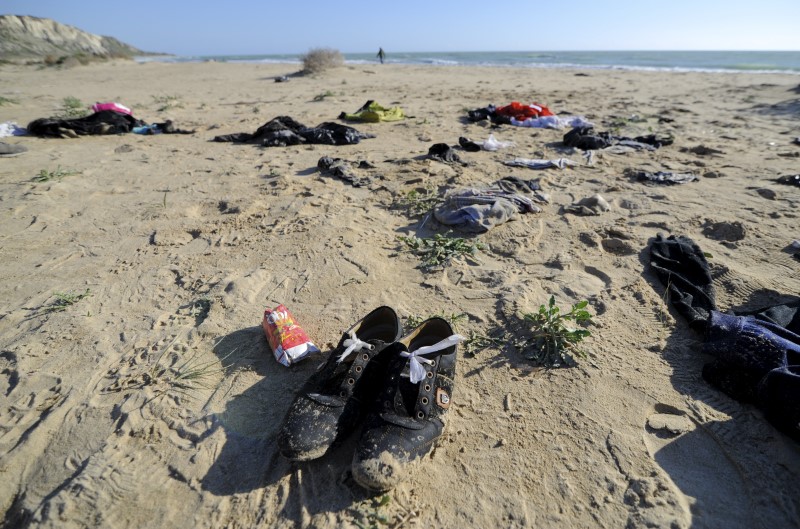By Paul Carrel
BRUSSELS (Reuters) - With a deal secured to help keep Britain in the European Union, German Chancellor Angela Merkel swiftly refocused her sights on pressing ahead with a joint EU solution to the bloc's refugee crisis in tandem with Turkey.
Along with the deal for Britain, tackling Europe's migrant crisis in collaboration with Turkey was a top priority for Merkel at a two-day EU summit in Brussels that ended late on Friday.
Germany took in over one million migrants last year, many of them fleeing war in Syria and Iraq, and has led efforts to offer money and promises to revive Turkey's long-stalled EU accession talks to get Ankara to prevent more people from embarking from its shores for Europe.
But Merkel's efforts to press on with the EU-Turkey plan were frustrated when a pre-summit meeting on migration due to be held Thursday between Turkey and 11 EU states was called off due to a bombing in Ankara.
Merkel said she spoke by telephone with Turkish Prime Minister Ahmet Davutoglu on Friday and was pleased that, after Thursday's cancelled meeting, he would join all 28 EU leaders for a summit in early March.
"The fact that we have decided a joint summit - not just a summit of 'the coalition of the willing', but a joint summit of 28 with the Turkish prime minister - I think that is a very strong signal," Merkel said.
Stoking the frustration of many EU states, Austria, the last stop on the way to Germany for hundreds of thousands of migrants who have flocked to Europe, on Thursday vowed to press on with a plan to cap migrants flowing into the country.
Austria's dispute with its peers is symptomatic of the rifts the massive flow of migrants into Europe has opened within the EU, with member states often ignoring calls from the European Commission to share the burden more evenly, and unilaterally reimposing barriers to movement over their borders.
The Austrian move threatens to clog up the route for migrants leaving Greece to head for Germany and other wealthier EU nations, exacerbating the migration crisis in Greece, the point of entry into the EU for many migrants.
Four sceptical eastern European members have floated a fallback policy of ring fencing Greece to keep the migrants they expect to land there from proceeding through Macedonia and Bulgaria to other EU countries to the north and west.
Merkel, who wants to keep the EU's commitment to the free movement of people within its borders, is pinning her hopes on the EU-Turkey deal.

"The EU-Turkey plan ... is a priority for us," she said, speaking for the EU as a whole.